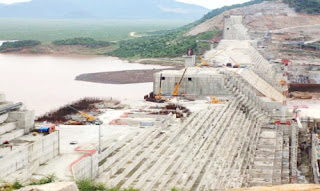How Kenya will administer Covid-19 vaccine when it arrives
The news of Covid-19 vaccines being over 90 per cent effective has left the world relieved and hoping for the best outcome.
Pfizer Inc said on Wednesday that final results from the late-stage trial of its Covid-19 vaccine show it was 95 per cent effective, adding it had the required two-months of safety data and would apply for emergency U.S. authorization within days.
Moderna Inc also announced that its experimental vaccine was 94.5 per cent effective in preventing Covid-19 based on interim data from a late-stage clinical trial, becoming the second U.S. company in a week to report results that far exceed expectations.
Kenyans received the news with mixed reactions with many people being optimistic.
But the Health Cabinet Secretary Mutahi Kagwe was apprehensive of the vaccine saying that he was not sure about them.
Kagwe called for caution days after he expressed reservations about the effectiveness of the Pfizer vaccine.
“As Kenya, we will not be used as guinea pigs to test vaccines that are essentially not cleared, and those that we are not sure about,” he said.
But what would happen after the vaccination arrives in Kenya?
Vaccines have the potential to protect lives and limit disease spread.
With the pandemic killing millions around the world, a large supply of vaccines would be necessary and would be needed quickly to stop the deaths and spread of the disease.
Once the vaccines have been tried on volunteers and found to be effective without any serious side effects, the government of Kenya will have to purchase the vaccine in a bid to save its citizens.
The public and private sectors will then mobilize to produce and distribute the vaccine, as quickly as possible to contain the situation.
The Health Ministry in collaboration with other governmental bodies will then issue national guidelines prioritizing who should be vaccinated first.
In Kenya's case, when we get the vaccine, it will be administered to all health workers in Kenya by 2021.
This is because health care provider offices would be overwhelmed with caring for the sick and would not have the capacity to administer vaccine.
Kagwe called for caution days after he expressed reservations about the effectiveness of the Pfizer vaccine.
“As Kenya, we will not be used as guinea pigs to test vaccines that are essentially not cleared, and those that we are not sure about,” he said.
But what would happen after the vaccination arrives in Kenya?
Vaccines have the potential to protect lives and limit disease spread.
With the pandemic killing millions around the world, a large supply of vaccines would be necessary and would be needed quickly to stop the deaths and spread of the disease.
Once the vaccines have been tried on volunteers and found to be effective without any serious side effects, the government of Kenya will have to purchase the vaccine in a bid to save its citizens.
The public and private sectors will then mobilize to produce and distribute the vaccine, as quickly as possible to contain the situation.
The Health Ministry in collaboration with other governmental bodies will then issue national guidelines prioritizing who should be vaccinated first.
In Kenya's case, when we get the vaccine, it will be administered to all health workers in Kenya by 2021.
This is because health care provider offices would be overwhelmed with caring for the sick and would not have the capacity to administer vaccine.
Gavi said it has now secured funds to buy vaccines for nearly 20 per cent of the country’s population.
After the health workers, the vaccines will be administered to the elderly since they have weak immune systems.
According to the CDC, as you get older, your risk for severe illness from the virus increases. People in their 50s are at higher risk for severe illness than people in their 40s.
Similarly, people in their 60s or 70s are, in general, at higher risk for severe illness than people in their 50s.
The government has urged those aged 58 years and above to stay at home and work remotely.
This category of people has also been urged to adhere to Ministry of Health protocols.
After the elderly, the vaccine will be administered to those with poor health.
These are people who have underlying serious conditions such as diabetes, cancer, hypertension among other lifestyle diseases.
Owing to difficulties in prioritization on the basis of chronic diseases, age is often used as a surrogate for identifying those at greatest risk of complications.
However, the epidemiologic characteristics of the pandemic will need to be considered, as the main population groups affected may vary.
The World Health Organisation said Africans living with non-communicable diseases such as hypertension and diabetes are more likely to suffer severe cases of Covid-19 and die.
In Kenya, around half of Covid-19 deaths occurred in people with NCDs.
In the Democratic Republic of the Congo, such patients accounted for 85 per cent of all Covid-19 deaths.
According to a WHO preliminary analysis of 14 countries in the African region, hypertension, diabetes, cardiovascular disease and asthma are the co-morbidities most associated with Covid-19 patients.
Finally, people without risk factors for complications will get the vaccine.
This is to prevent or reduce morbidity. WHO notes that this is the largest group and would include both healthy adults and children.
The main goal in vaccinating this group would be to reduce demand for medical services and to allow individuals to continue normal daily activities.




Comments
Post a Comment